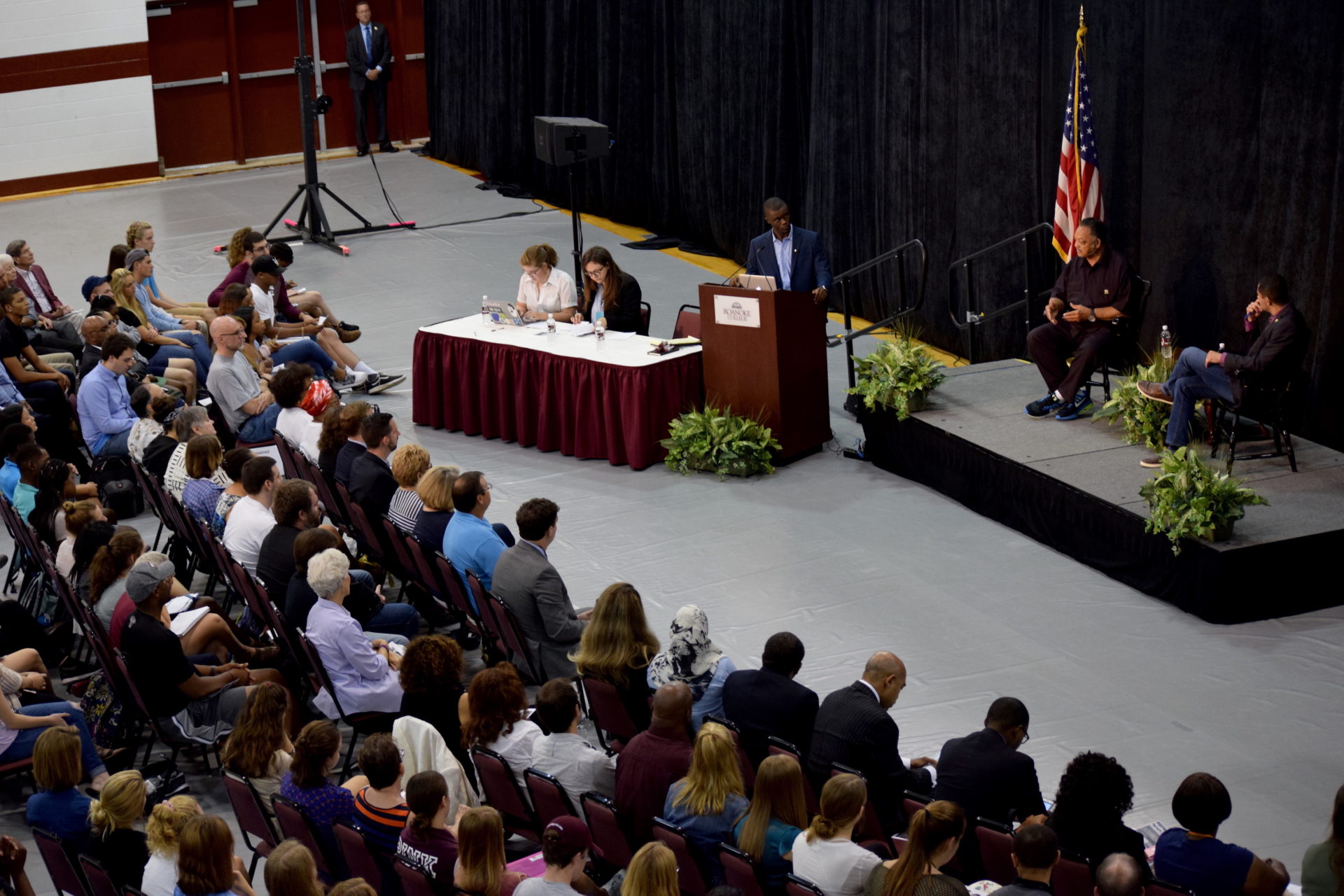Reverend Jesse Jackson, major civil rights leader and former presidential candidate, spoke at Roanoke College in a town hall event sponsored by Roanoke College Democrats to a collection of students and community members.
Jackson and Virginia Delegate Sam Rasoul, an alumnus of the college, led the discussion, which centered around topics of healthcare, inequality and religious and racial inclusivity. Senior and president of RC Democrats Myles Cooper introduced the pair and posed questions submitted by students in the crowd.
“This shows that we are open to all people with various ideologies. We had Ben Shapiro last year and now we’re having Jesse Jackson. This shows we have no real bias in terms of who we’re open to, regardless of whether we agree with them or not,” Cooper said.
Jackson, longtime civil rights leader, marched alongside Dr. Martin Luther King Jr. and founded the Rainbow PUSH Coalition, a non-profit focused on achieving civil rights. On a tour that touched several communities in Virginia including Lynchburg, The University of Virginia, and George Mason University, Jackson implored attendees to support single payer healthcare and automatic voter registration legislation in the commonwealth.
Also, given recent events in Charlottesville, Jackson gave swift condemnation to the very existence of confederate statues.
“They never should have been established in the first place,” Jackson said. “There are no Hitler statues in Germany. There are no swastika flags in Germany.”
But beyond specific policy proposals, Jackson relied on broad appeals to humanity that spanned across races, religions and gender. Sensing his surroundings, Jackson made several references to a common political theme of this region.
“The coal miner of the Blue Ridge and the cotton picker were of the same plight; both overworked and underpaid,” Jackson said.
After calling on students that aren’t registered to vote to stand up, Jackson and Rasoul brought those students to the front and actually registered them to vote right there, handing out pens and registration forms.
Junior Sabrina Utz expressed satisfaction in the event, but also confusion as to why such a large figure would visit a small college in a small town, in the less populated side of a state without any major cities.
“We’re a pretty white college and there’s not a ton of diversity here,” said Utz. “So, I really wonder why the [college] was interested in him coming.”
Jackson, when prompted about the nature of the area, pointed to the contentious elections in the commonwealth, both at the state and local level, pivoting back to his strong belief in the value of voting.
“People respond,” said Jackson with a chuckle. “Every vote counts, every vote matters and all the small schools have brilliant students who deserve attention. Sometimes they can’t afford to have a certain caliber of speakers, so we don’t charge to come here.”
Jackson seemed to center much of his rhetoric on connecting with all types of voters, something he’s been able to do since the 1980s when he came in third place in the Democratic primary. That success has been at least partly attributed to his religious appeal. Jackson, an ordained minister, has been consistently able to do something many Democrats struggle to do: connect with the religious. Jackson often uses references to religious teachings to justify his policy proposals.
“Those who don’t want health care for the poor, they have a problem with religion and the Bible,” Jackson said. “It’s our job to feed the hungry, to clothe the naked, to defend the poor. That’s the best of religion.”




